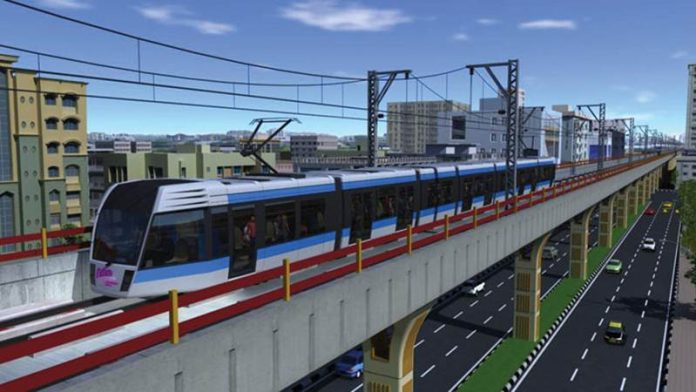Mumbai Metro Rail Corporation Limited (MMRCL) has said that work on the first and only underground metro network in Mumbai, Line-3, popularly known as the Bandra-Colaba-SEEPZ Line, has been 76.6 per cent complete.
According to S K Gupta, Director (Projects), MMRCL, the first section of the Mumbai Metro Line-3 between Aarey Milk Colony and Bandra-Kurla Complex and the Aarey Car Shed will be operational by December 2023.
Metro Line-3 is a 33.5 km-long underground corridor running along Colaba-Bandra-SEEPZ. The length of the corridor is marked with 27 key stations, out of which 26 will be underground.
“The first phase of the project between Aarey Colony and BKC would be operational by December 2023. The Aarey car shed would also be operational by then. The stations in the stretch including Aarey Colony station would be ready by December next year,” said Gupta.
“The second phase between BKC and Colaba would take another six months and would be completed by mid-2024,” he added, reports Deccan Herald.

Metro Line-3 would connect Mumbai’s key financial hubs, such as Nariman Point, Bandra-Kurla-Complex, Fort, Worli, Lower Parel, Goregaon, etc.
The metro will provide, for the first time, connectivity to the airport, Nariman Point, Cuffe Parade, Kalbadevi, Worli, BKC, Airport, SEEPZ and MIDC.
Besides, two crucial heritage stations in Mumbai — CSTM and Churchgate — will also be connected through the alignment.
The metro trains will run on a 25 KV AC traction supply and have a maximum passenger carrying capacity of 2,350.
The trial run of the prototype rake for Metro 3 (Colaba-Bandra-SEEPZ section) began on 30 August on a 3 km stretch between Sariput Nagar and Marol Naka Metro Station.
About 17 tunnel boring machines (TBMs) worked simultaneously for the first time on an underground metro project when the tunnelling began in November 2017.
The project is estimated to have a total cost of about Rs 38,000 crore. Of the total project cost, 50 per cent is being funded by the Japan International Cooperation Agency as a soft loan and 20 per cent by the Union government.
Originally, the line’s construction was scheduled to be completed in 2021. However, work delays caused the deadline to be missed, and the project cost increased from Rs 23,136 crore to Rs 38,000 crore.


